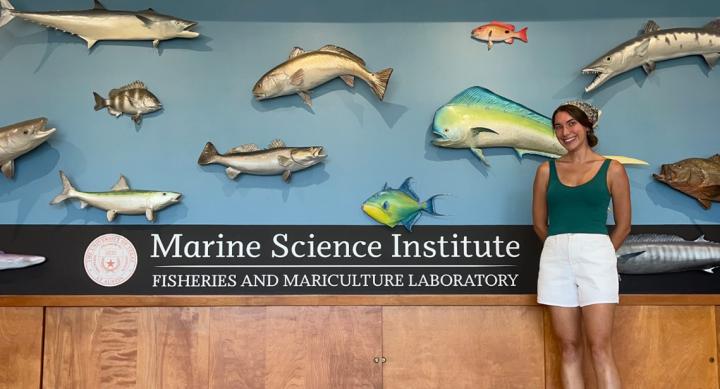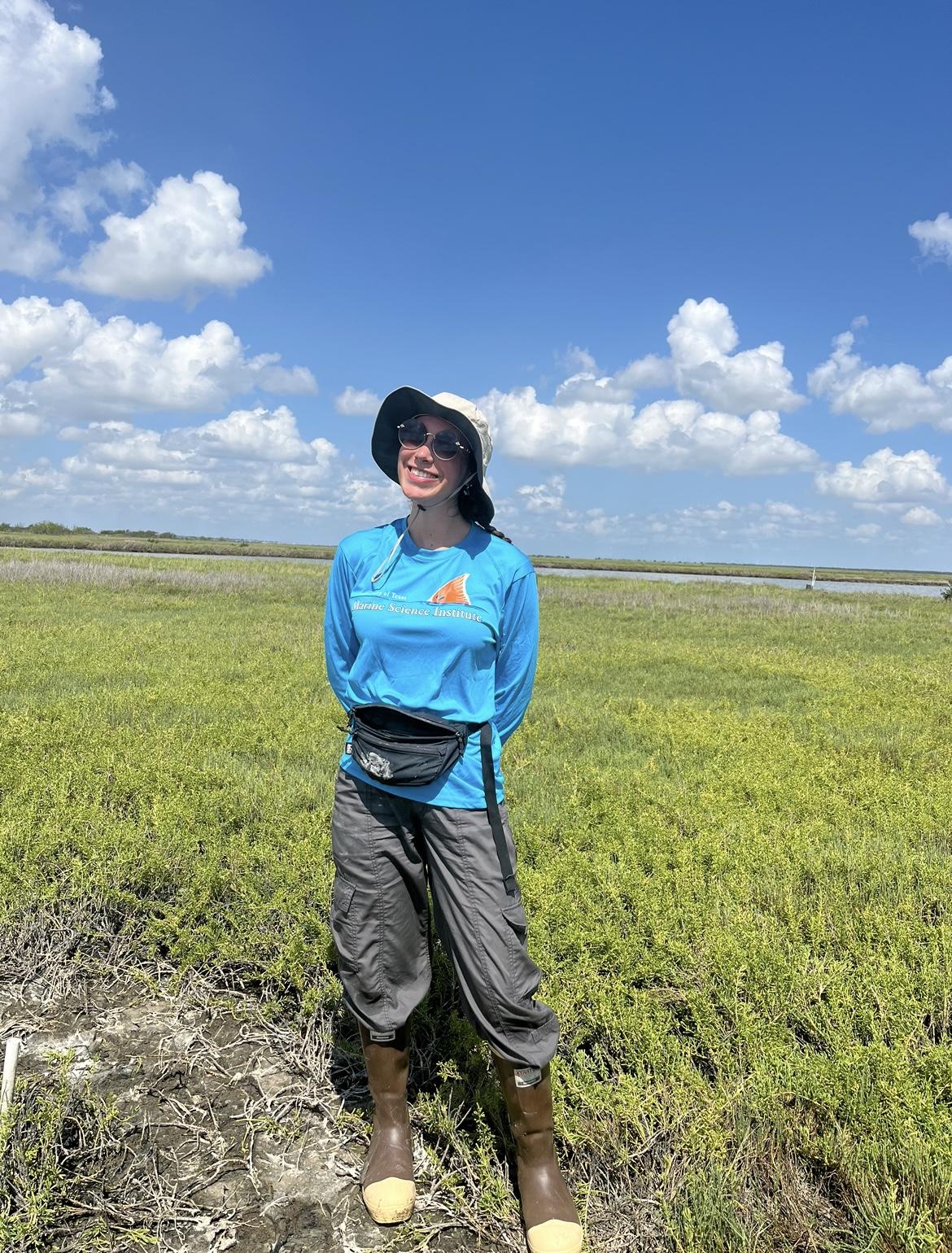
Pharm.D. students looking for educational stimulation and challenge beyond the traditional curriculum are invited to participate in the college’s Honors Program. This selective program challenges participants by introducing them to new ideas and placing them in contact with others of similar aptitude. Honors Program students participate in research projects with faculty mentors and present their results at college seminars. Many of these students also present their results at national meetings and in peer-reviewed journal articles.
This month, we highlight Pharm.D. Abbey Johnson. Abbey is a P2 pharmacy student who was accepted into the Honors Research Program this spring. She has a Bachelors degree in Life Sciences from Kansas State University with dual Minors in Biology and Psychology. Her research mentors are the Department of Marine Sciences' Dr. Kristen Nielsen and the Division of Pharmacology and Toxicology's Dr. Andrea Gore.
How did you get interested in research?
While completing my undergraduate degree, I worked in a laboratory focused on drug addiction, evaluating the impact of N-Acetylcysteine on amphetamine relapse. This experience laid the groundwork for pursuing research in pharmacy school.
How did you find your research problem?
Through personal experience, I became interested in exploring the potential for non-hormonal birth control that mitigates the side effects seen in current formulations. Unfortunately, I was unable to find a mentor who was actively researching this topic.
When Dr. Smith, a professor at the University of the Incarnate Word, spoke to my P1 class about the effects of pharmaceuticals in the environment, I was captivated. I began diligently searching for professors at UT who were studying this issue. I soon discovered Dr. Nielsen at the Marine Science Institute, whose research focuses on the unintended consequences of medications in the environment. We connected via Zoom and agreed that I would complete a research rotation in her laboratory in Port Aransas. This opportunity was particularly exciting for me as a Kansas native, since I had few chances in life to experience the ocean!

How did the Summer Research Fellowship impact your research?
The summer research fellowship allowed me to travel to Port Aransas, where I learned about the lab’s recent findings that some anti-diabetic drugs act as endocrine disruptors in fish. As a result, we decided that my project would investigate whether a novel anti-diabetic medication, most likely semaglutide, has a similar effect.
During my visit, I developed essential skills for my project. I observed how the staff at the Fisheries and Mariculture Laboratory (FAML) provided the Nielsen laboratory with captive-spawned red drum (Sciaenops ocellatus) eggs. I had the opportunity to practice sorting these eggs based on developmental stages and imaging the embryo-larval fish using a stereoscope. Additionally, conducted a small study in which I exposed these embryos to various concentrations of semaglutide over a 72-hour period post-hatch.
Although there was no fieldwork for the Nielsen lab during my trip, fieldwork is a prominent component of environmental research. Therefore, I sought out the opportunity to complete fieldwork in another lab. This involved traveling to Corpus Christi, where I coring designated wetland regions to assess feldspar levels. While this work was not directly related to my research, it provided an excellent opportunity to gain valuable skills in sample collection with minimal disturbance to the ecosystem, as well as working in extreme temperatures.

